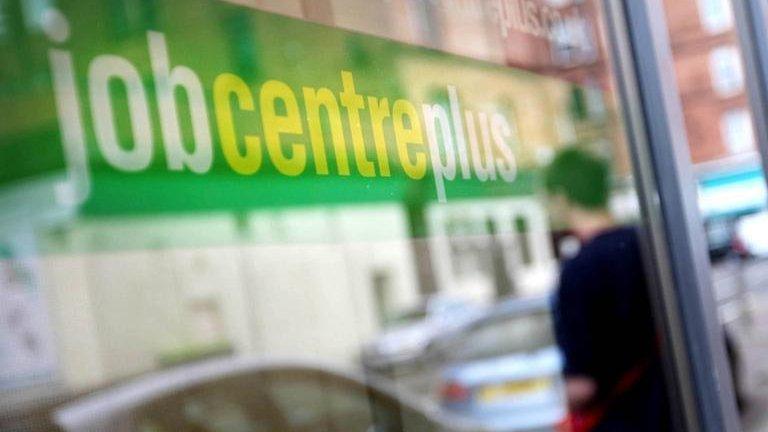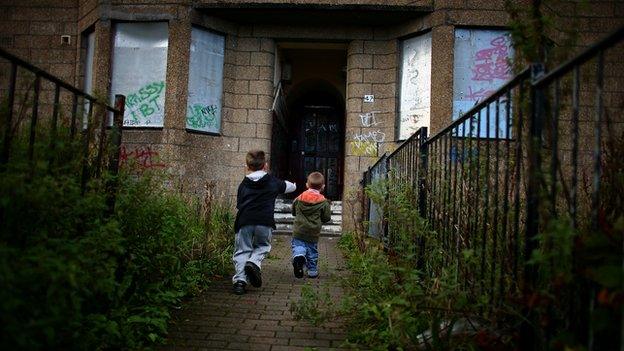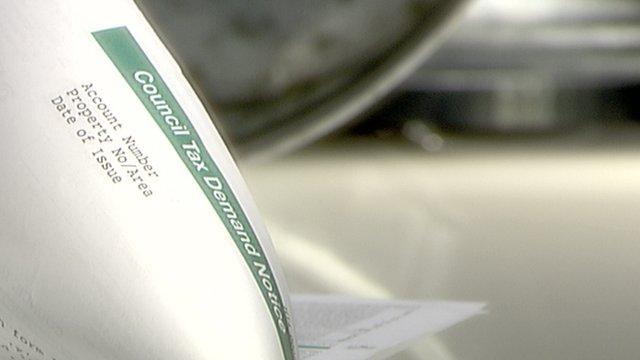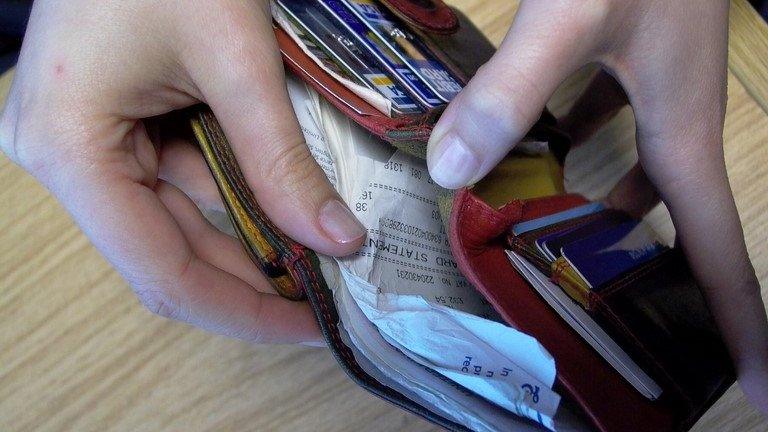Court summonses rise after council tax benefit cuts, Labour says
- Published
Peter Lumb, who is struggling to pay, tells the BBC: "I feel society wants rid of me"
Hundreds of thousands of people have been taken to court in England for non-payment of council tax owing to benefit changes, according to the Labour Party.
Labour said 112 English councils had reported issuing 156,000 court summonses since April to people paying more tax as a result of the changes.
That meant 450,000 individuals may have been taken to court across the whole of England in six months, it claimed.
But Local Government minister Brandon Lewis said the survey was "misleading".
He told the BBC there had been about three million summonses in the last year of the Labour government and the situation was now "getting much better".
Labour asked all 326 billing authorities in England how many court summonses they had issued following the change to council tax benefit in April.
It said the 112 authorities that responded were from a representative cross-section of councils, in terms of population density and deprivation, and extrapolating the numbers for the whole of England meant that as many as 450,000 individuals may have been taken to court since April.
Hilary Benn, shadow communities secretary: "Families are being forced to choose between staying on the right side of the law and feeding themselves"
'Utter failure'
Shadow communities secretary Hilary Benn said Prime Minister David Cameron needed "to wake up to what's happening across the country".
"People on the lowest income are struggling to pay his council tax rises.
"This is exactly what happened with the Poll Tax, as many are disabled people, veterans and carers," he said.
Pete Lumb, from Hornsea, a small seaside town in the East Riding area of Yorkshire, is one of the individuals that has received a court summons.
He is unemployed and has suffered with mental health problems. Living in a small bedsit, he says he has around £70 a week to live on.
Since April, the council has been asking him for a few pounds a week extra towards the council tax - money he says he simply doesn't have.
"The chances of me getting a job are pretty much nil. I feel society just wants rid of me. I feel a complete and utter failure," he says.
He's worried the next step will be bailiffs coming round.
East Riding Council said that the changes to council tax benefit were "entirely the result of government policy and not anything decided by this council".
It has encouraged anyone struggling to pay council tax to contact the authority at the earliest possible stage.
'Contradiction'
Before April of this year, millions of people on low income in England paid no council tax at all, or had their bill substantially reduced. The council tax benefit system was then replaced.
The government said this was part of a wider package of changes designed to control the spiralling cost of welfare - and encourage councils to find ways of helping those on benefits into work.
It reduced the overall level of funding by 10% and said each council should decide how much support to offer residents - although pensioners were protected from any cut.
Some councils managed to find savings elsewhere and absorb the funding reduction, thereby maintaining the level of support for low-income households. The benefit cuts were not passed on in Scotland or Wales.
The majority of authorities in England, however, said they had no option but to ask some of the poorest residents for money. Many had never paid council tax before.
Often, these residents have been asked for just a few pounds a week extra. But that can add up to hundreds of pounds a year.
Already there have been reports of queues forming outside magistrates courts on certain days of the week, as the number of cases of non-payment increases.
Local Government minister, Brandon Lewis: "Labour's figures do not stack up"
'Shoddy'
The Citizens Advice Bureau in Hull said it dealt with 1,000 cases last August, but by this August the number had risen to 3,000.
But Mr Lewis said Labour's survey was "shoddy" and that official statistics "show arrears have fallen, and the amount of council tax collected has increased".
"It is nothing like a full survey of the country," he told BBC Radio 5Live.
"I think it is really bad that the Labour Party just want to use something like this to scaremonger and to make political points in what is a really serious issue about dealing with our welfare problems."
Mr Lewis said a £100m hardship fund had been made available to councils to support people struggling to pay their council tax, on top of the funding already given to local government.
"There is no interest for a council to get in a situation where people can't pay and they should be working with people...to ensure that they can protect the most vulnerable," he added.
"They don't need to be increasing the charges on people."
The government does not have its own figures for the number of court summonses since April.
Officials emphasise that every year there are a high number of court summonses for non-payment of council tax.
Labour said it had asked councils for specific numbers of cases as a result of the changes to council tax benefit, so the total in its survey represents the extra number of summonses - those people who haven't paid council tax until now, or have been asked to pay more since April.
- Published15 February 2015

- Published20 June 2014

- Published28 March 2013

- Published29 April 2013

- Published31 January 2013

- Published27 August 2013
